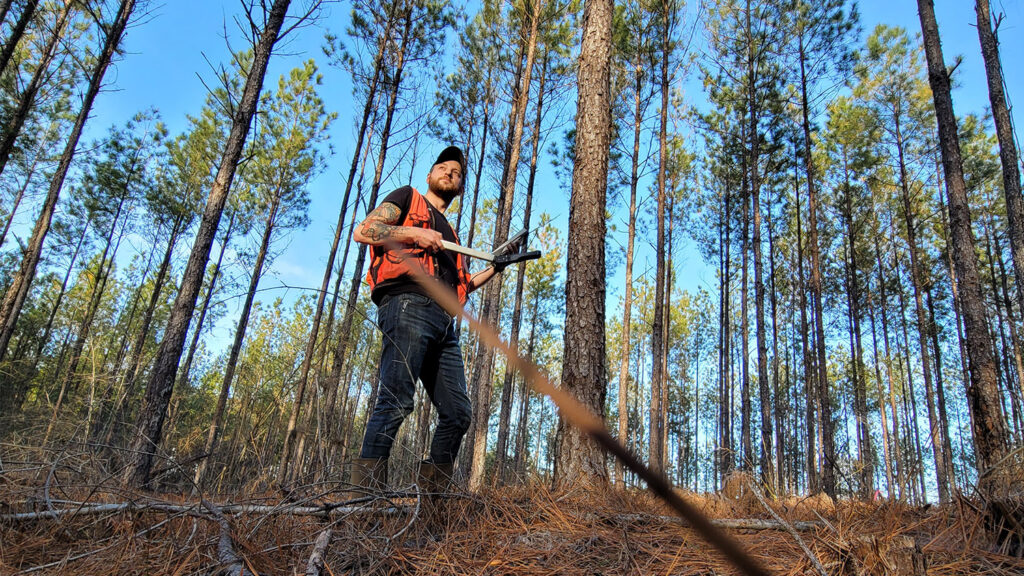Modeling the Efficiency of Loblolly Pine Fertilization

Project Title
Modeling Growth Response of Loblolly Pine and Economic Returns From Nutrient Additions Based on a Gradient of Soil Characteristics Across the Southeastern United States
Project Description
This project addresses the growth response and economic return of loblolly pine fertilization across a broad gradient of soils in the southeastern U.S. Based on a new soil classification system constructed by the Forest Productivity Cooperative for the purpose of forest management, researchers will model fertilizer response trials to better assess factors driving forest response. They will include other data such as LiDAR or satellite imagery to then develop better prediction models. With this information, the researchers will conduct a spatially explicit economic analysis to assess the return-on-investment for fertilization.
Principal Investigators
Rachel Cook (Director)
Leah Rathbun
Justin Baker
Collaborators
This project will be completed in conjunction with the Forest Productivity Cooperative and the Southern Resource Assessment Consortium, both public-private partnerships that work directly with companies that manage over 23 million acres of plantation forests in the southeastern U.S.
Expected Outcomes
This project will include the development of a number of useful tools, including:
- A soil-specific fertilizer response map of the southeastern U.S. for loblolly pine plantations.
- Predictive models estimating the magnitude and duration of response to fertilization based on soils.
- A spatially explicit economic model that incorporates soils-based fertilizer response, cost of fertilizer and local stumpage prices.
A McIntire-Stennis supported project
About McIntire-Stennis
The McIntire-Stennis program, a unique federal-state partnership, cultivates and delivers forestry and natural resource innovations for a better future. By advancing research and education that increases the understanding of emerging challenges and fosters the development of relevant solutions, the McIntire-Stennis program has ensured healthy resilient forests and communities and an exceptional natural resources workforce since 1962.